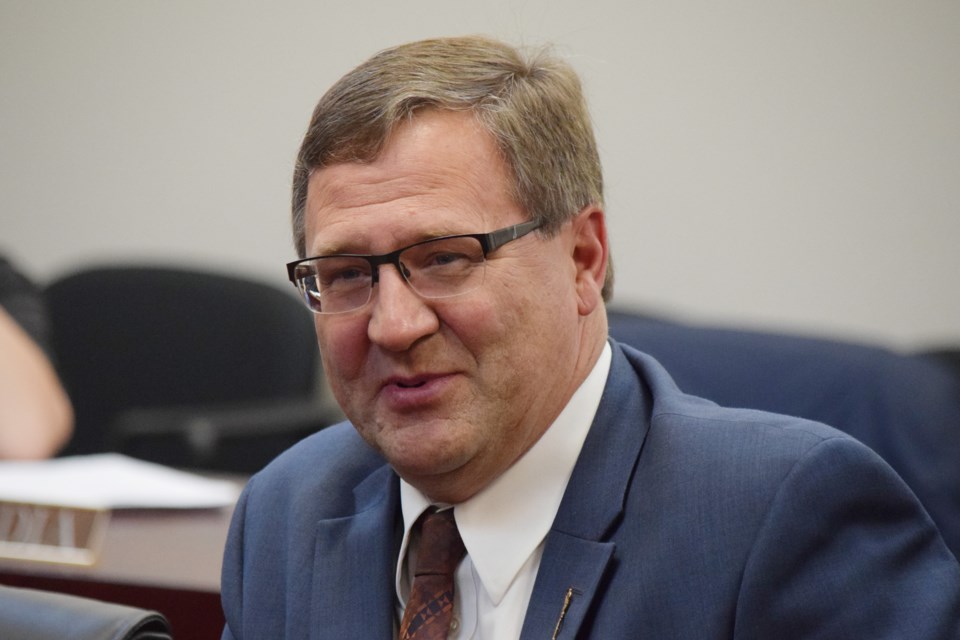ATHABASCA – MLA Glenn van Dijken says he was surprised to learn just recently that there is no local representation on the Athabasca University board of governors, but it’s something he hopes to help resolve as he continues to bring the situation to officials at Alberta Advanced Education, including the minister.
Discussions with officials and community members about the university are nothing new in van Dijken’s world, but a recent peppering of questions by Rotarians, brought the lack of local representation on the AU board to his attention. Soon after, the ‘Keep Athabasca in Athabasca University’ letter-writing campaign started to take off.
“We really rely on the board of governors to be in the best position to understand how the university can succeed,” said the MLA for Athabasca-Barrhead-Westlock in a May 27 interview. “Now that being said, that doesn't mean that the community voice of concern is irrelevant. The voice of concern is very relevant, and if I saw there was no consideration for employment in Athabasca, and no consideration for the assets in Athabasca, then I would be very concerned.”
Those who sit on the board of governors are appointed by the minister of advanced education, which is currently Demetrios Nicolaides, based on recommendations from the board. van Dijken said he was also surprised to learn there is no seat on the board that is meant specifically for a representative from the region. Town of Athabasca Coun. Rob Balay was the last member of the community to sit on the board, but he was not replaced when his term ended as the university wanted to find a new president first, van Dijken said.
“About three weeks ago, all of a sudden it took a turn where the letters were starting to claim that Athabasca University had made a decision to empty the campus in Athabasca, but nobody has ever been able to show me that an actual decision was made in that regard,” said van Dijken.
The university has said no decisions about where jobs will be located in the future have been made, and remains firm that it is not leaving the community. The institution’s current five-year strategic plan, which concludes in 2022, references a near-virtual environment, as opposed to one that is completely virtual.
The ad-hoc group behind the letter-writing campaign points to a consistent decline in the number of jobs based in Athabasca — from more than 450 a decade ago, to the 40 or less it expects to see at the local campus in 2022 — as well as the practice of offering new hires an option to work from home, in the near-virtual environment the university is implementing.
“The minister has committed that, if I can bring him names of qualified people that could sit on the board of governors from the community of Athabasca, he would be more than willing to appoint one or possibly more, so that that voice is always there,” said van Dijken. “We’ve really got to get on top of it. If there's people that are willing to sit on the board of governors, and that are qualified, we need their names fairly quickly.”
van Dijken also pointed out that with the transition to working from home, not just at the university, but overall, there is a good chance that people will decide to move to areas like the Athabasca region to get away from the more urban centres, and if you look at the real estate market in the region, it’s already happening.
“We do have that change that is happening, and we may lose some, but I think one thing that has happened in the last year is that we've been able to gain population. If you take a look at rural real estate, we've been able to gain quite a few people back into our communities that moved into the rural area,” he said.
“I believe that we truly need to ensure the success of the university, because if the university succeeds, it’ll just help to feed back into Athabasca, but if we get into a position where the university starts to fall behind in the global competition, that's not good for Athabasca either.”



